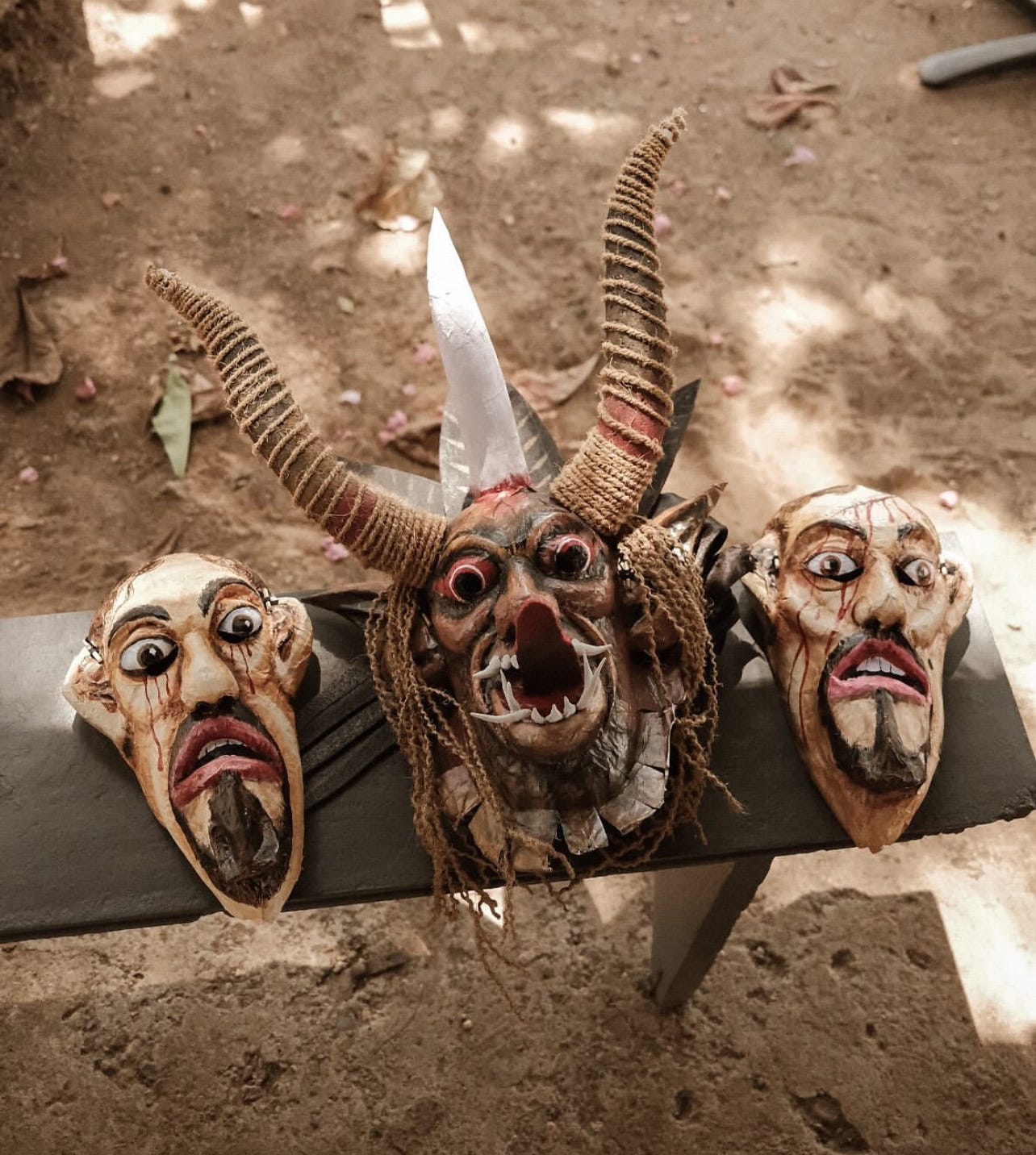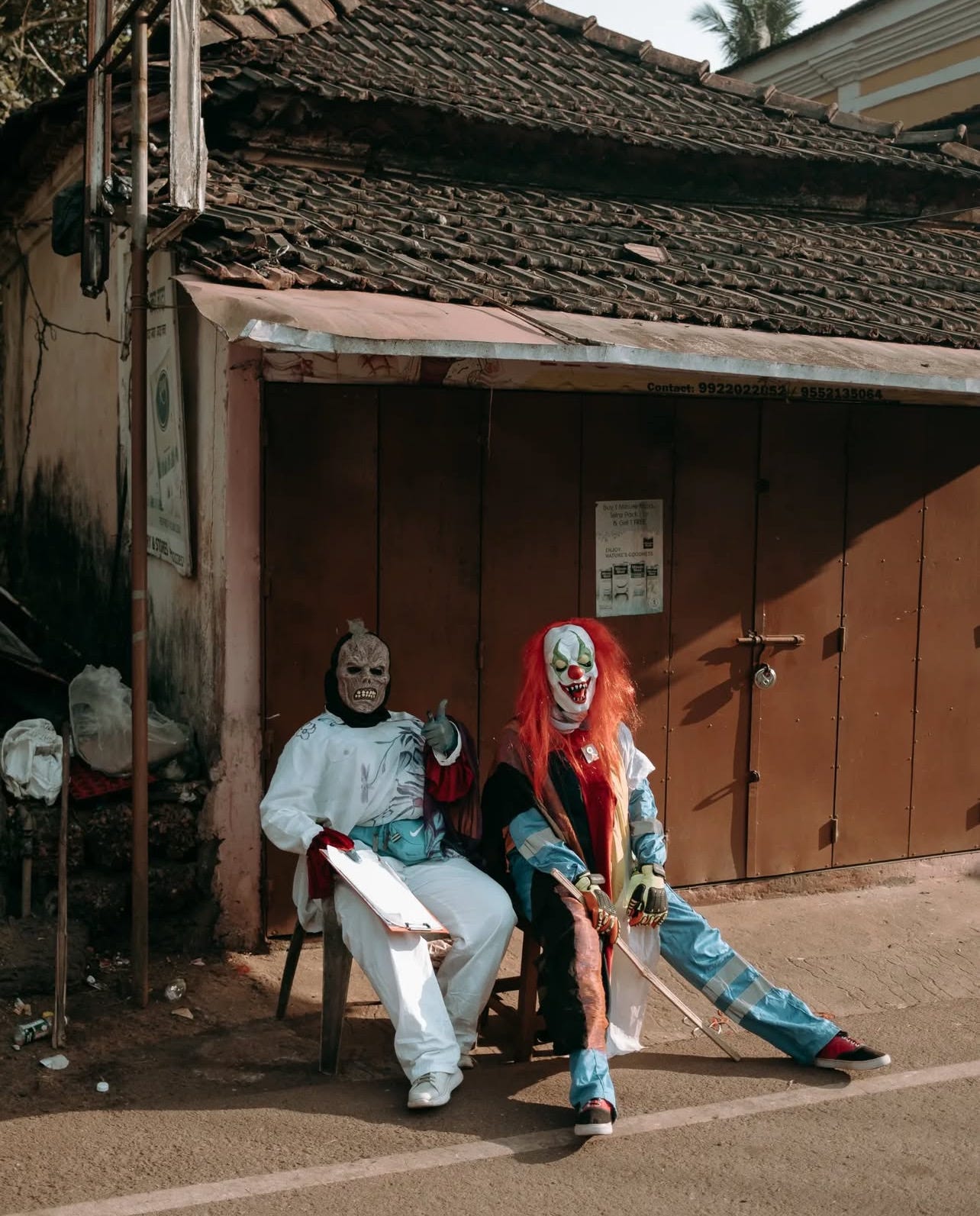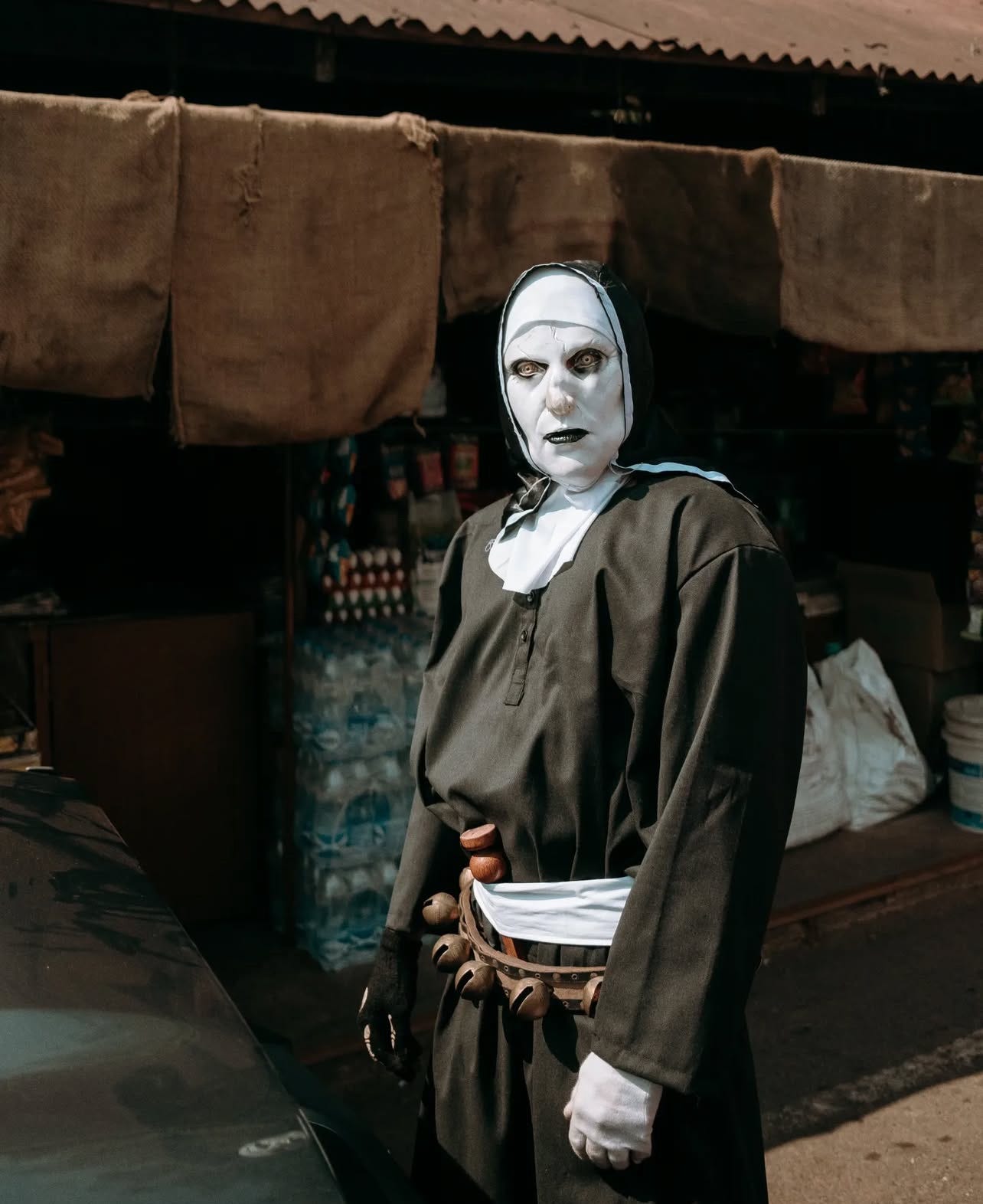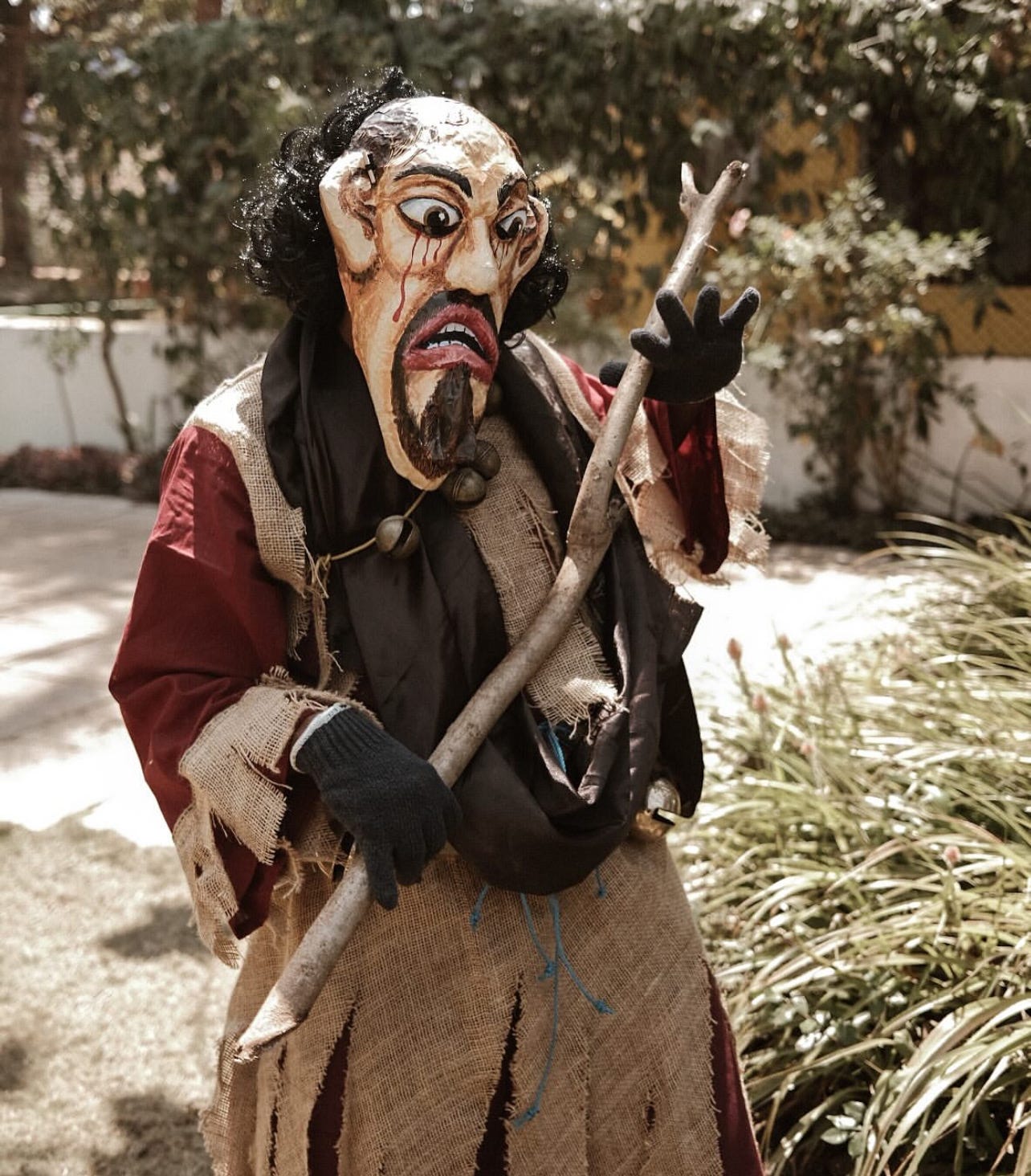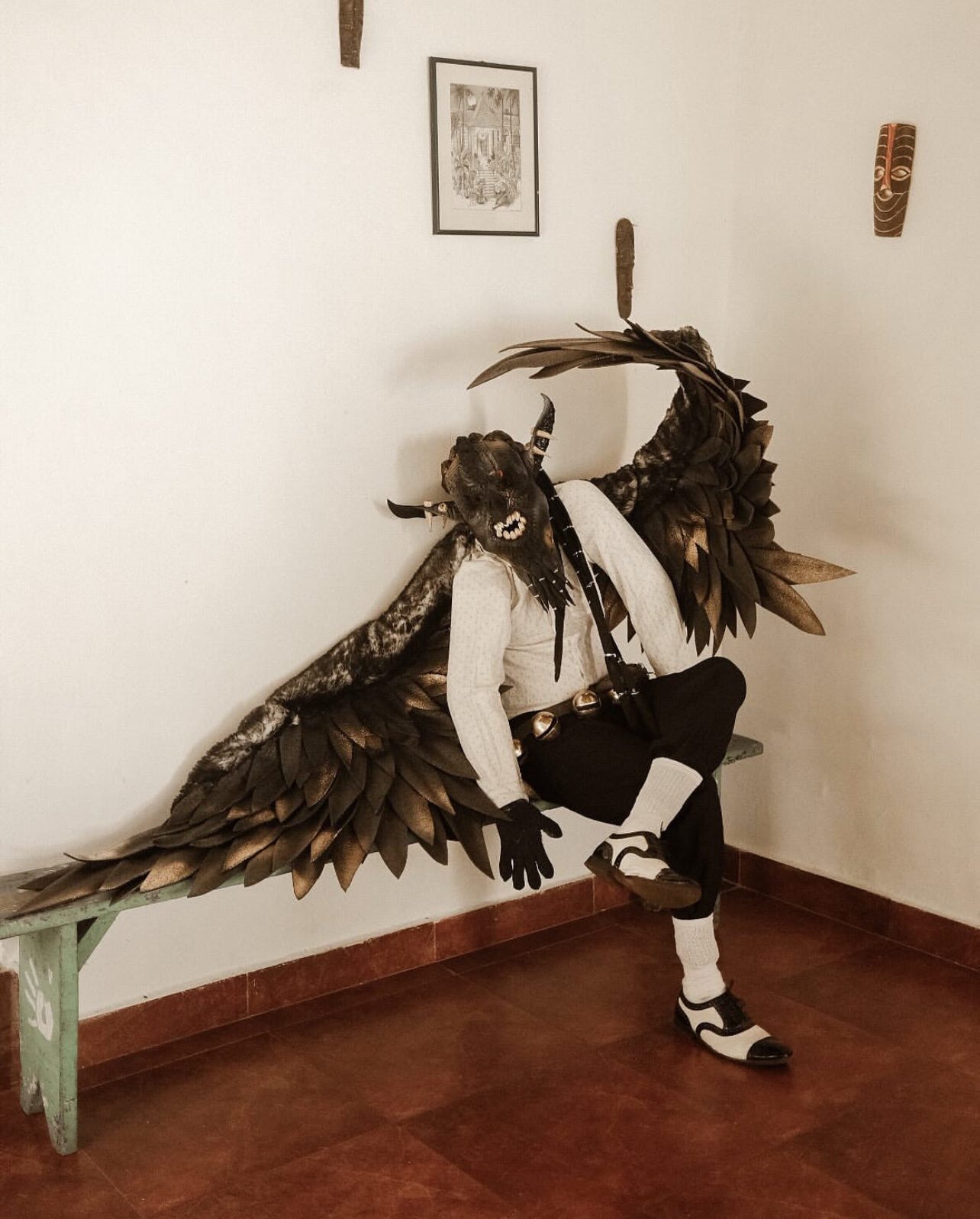Ghosts, Bells, and Disguise: A Carnival from Goa’s Forgotten Island
India doesn’t celebrate in singular notes. It sings in dialects. In side lanes. In rituals that don’t always make it to postcards. This is a land where festivals are not always declared—they are inhabited. Sometimes they bloom in temple forecourts; sometimes in masked processions through sleepy islands; sometimes in whispers that never leave the village. Elsewhere in India is a journey through these subcultures and shadow traditions—those that do not seek attention, but carry within them the stubborn pulse of a place and its people. We begin in Divar, where once a year, an entire island forgets its face and remembers its soul.
In 2022, I stumbled upon a series of hauntingly beautiful images by photographer Fabian Franco—each frame capturing masked figures and echoing cowbells—and I found myself asking, what is this wild, wondrous festival called Potekar?
There is an island not far from Goa’s feverish shores, where the air, heavy with the scent of woodsmoke and wet laterite, shifts each year into a theatre of the surreal. On this island—Divar, cradled in the Mandovi’s lazy bend—the past rises unannounced, wrapped in gunny sacks and cowbells, hands painted in ochre, voices cracked and distorted. This is not mere nostalgia. This is the Potekar festival.
Watch the festival here
How does one speak of Potekar? Is it a carnival? A masquerade? A communal fever dream passed down through generations? To witness it is to see a village, entire and undivided, slipping into a skin of memory older than its colonisers. There are no VIP enclosures here, no stage-managed performances. Just raw theatre, echoing from a time when the island’s rhythms answered not to maps, but to myths.
Potekar, they say, began long before the Portuguese ships cast their anchors. A trinity of days before Ash Wednesday, a temporal seam when rules blur and the wild slips in. It coincides, loosely, with the more flamboyant Carnival—where King Momo decrees revelry—but unlike Carnival, Potekar feels rooted not in parade but in primal play. It is, at once, a rebellion and a ritual.
There is no programme. No printed flyer. No one tells you what to expect. And that is the beauty of it.
At dusk, the village transforms. Children and men—sometimes entire families—don painted faces and stitched-together animal costumes. They wrap themselves in homespun, their bodies clanging with cowbells at the waist and ankles. The sound, metallic and rhythmic, travels across fields and coconut groves, an echo of forests and forgotten gods. Voices are altered, mannerisms shed. A father becomes a faceless creature; a neighbour, an unrecognisable growl. You do not greet; you guess. For in Potekar, anonymity is sacred.
One might say: “But what is the purpose?” And that, perhaps, is the question of our age—an age where everything must be functional, profitable, explainable. But Potekar laughs at such logic. Its purpose lies in its purposelessness. In the act of dressing up not to entertain but to become. In unsettling the usual, even if only for a moment.
Food is cooked. Drinks are shared. Stories—half-true, half-imagined—flow as freely as toddy. In verandahs and winding lanes, elders watch with knowing smiles as the youth stumble into roles that their forefathers once inhabited. And it is this—this continuity, this unspoken passing of the thread—that holds Potekar together.
The festival is not about spectacle. It is about surrender. Surrendering to a time when tradition was lived, not displayed. When culture was not curated for tourists but carved into daily life.
In Divar, the Potekar festival continues, modestly and miraculously, as the world outside accelerates. It is not immune to change—no tradition truly is. Yet, like the tides that kiss its shores, it returns with rhythm, with memory, with a quiet defiance.
And so, once a year, for three days and nights, the island sings an older song. A song of masks and merriment, of disquiet and delight. And in its strange, jangling procession, one hears not just cowbells, but the sound of a culture remembering itself.
If this story moved you, share it. Rooted Narratives is a slow archive of India’s intangible heritage—mapped through memory, metaphor, and lived culture.
Subscribe | Forward to a friend | Support the project





